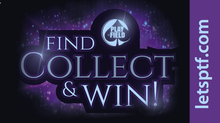The Frenchman and the Spaniard
- Tom Curran
- Jun 17, 2016
- 5 min read
In the fourth chapter (out of more than 100) of Alexandre Dumas’s The Count of Monte Cristo, the villainous supercargo (purser) of the merchant vessel Pharaon (of Marseille) explains to a jilted, and deeply jealous, Catalan lover, the difference between the French and the Spaniards. As the seafarer spells out, in the beautiful translation by Robin Buss: “A Spaniard is inferior to a Frenchman in one respect: your Spaniard thinks things over, but your Frenchman thinks things up.” In terms of Dumas’s plot, the French sailor wants to push the jealous Spaniard from wallowing in his resentment to an actual act of swift (and certain) revenge.
Dumas’s villain provides a motto, as it were, for a fat, scholarly volume (with 75 pages of appendix, notes and index), entitled Thinking, Fast and Slow (2011). If Dumas had been consulted, no doubt the subtitle might have read: “The Frenchman and the Spaniard”. This famous study by the now 82-year-old Daniel Kahneman is a book which – paradoxically – privileges and celebrates “fast thinking” by the production of what can only be considered an extreme expression of “slow thinking”.

The publication represents the summary of an entire lifetime’s research by this Nobel Prize-winning author – which this slow-thinking commentator knows he will never manage to read to the end. And a “fast thinker” of my acquaintance – having digested less than 5% of the entire analysis – has been able to reproduce the principal arguments of this fat tome to all our benefit – since the celebrated (and best-selling) Thinking, Fast and Slow is destined to end up in that special living room depository of books classified under the category: “I know this to be an important work of non-fiction, and I would like to be able to discuss it, but I am never actually going to read this book with any care.”
The most fascinating issue for followers of www.itisadirtyjob.com is how an academic can persuade thousands (even tens of thousands?) of people to buy a book that looks, when you get past the attractive dust jacket, rather off-putting, and that the punters are, in principle, unlikely to read with any genuine enthusiasm to the bitter end. This book was made to be devoured by “fast thinkers”, since for most of us this will be a book we are more likely to flip through rather than savour. So for www.itisadirtyjob.com we have been presented with a challenge: how do we go about turning a work of research, that even few bookworms will actually read, into a best seller? But the “the human interest” angle here is: how a book praising the intuitive, the instinctual, the impulsive, and the apparently mercurially decisive can be written by someone whose dense consideration of the question is the product of an endless mulling over of the question (for decades).
I have the beginnings of an answer. Obviously, Aesop’s Fables show a profound, intuitive grasp of this paradigm: one needs only to think of the ant and the grasshopper, or the tortoise and the hare. The hare has worked out the percentage of the probabilities governing the race “from the get-go”, but he still ends up losing the competition. And the grasshopper, living, as he does, in the moment, isn’t really capable of taking “the long view”, which the endless preparation (“Winter is coming”) for the barren year end requires.
In my own experience – in complete conformity with the supercargo’s separation of the Spaniards from the French – the endless mental preparation for any task totally inhibits the effective realization of any project; and the intuitive, immediate action, while gratifying in the short term, is bound to land the author into the quicksand of unintended consequences – often so profound, that one wishes one had never acted in the first place.
Robert Louis Stevenson’s creation Dr Jekyll and Mr Hyde is most instructive here. Stevenson’s “strange case” offers a picture of a single individual who nonetheless operates with two distinct personalities. In a way, the impossible task with which life presents us is to pull off this trick on an almost daily basis. We are expected to plow ahead with short-term and long-term projects – but are often not given the opportunity to consult the maps, the charts and the reconnaissance reports which prepare us for the perils ahead. It is as if we are being asked to complete an exceptional round of golf, without ever having walked the course; we are proceeding blindly since we only discover the sandtraps, the hazards and the rough, while we are actually playing (and racking up an ever higher, unsatisfactory score). There cannot be much pleasure in playing golf competitively, if there is no prospect for success even from the very outset. The only solution is to hire caddies who, while not playing themselves, are able walk the novice through all these pitfalls, as each becomes pertinent.
The only long-term hope obviously resides in a partnership, where each party recognizes the strength of the other, and both decide to ameliorate their own weaknesses by turning these to their advantage. To recognize one’s own shortcomings is actually an act of maturity and a paradoxical show of strength: to yield to another’s superior capacity and insights is not a declaration of failure, but a victory over both opportunity and time.
The infamous Machiavelli – five centuries ago – was perfectly clear about the need for both “thinking, fast and slow”. On the one hand, what Machiavelli calls virtù (prowess is a reasonable translation) is evident when “the prince” takes advantage of the opportunities that fortune alone makes possible; on the other hand, grasping opportunities impulsively – without having done the proper strategic planning – is bound to lead individuals, families and corporations into great periods of unhappiness, if not outright disaster.
The tortoise, as we know, needs a stick to get moving; the hare needs to be reminded that victory is only possible through the long haul, and by actually finishing the race. To recognize your shortcomings is a victory over your own human nature. The recognition of personal imperfection is a two-fold liberation: you learn to avoid what cannot be well done, and at the same time you are enabled to have the freedom to do whatever offers you true and lasting satisfaction. Obviously, the price is to yield to another’s superior talents and insights. Yet by this means an actual miracle occurs: both sides of this equation have richer and more fulfilling lives. Each is picking up where the other leaves off, and both are prodding the other to improve their productivity. Together, in this partnership, by thinking things over we are enabled to think things up.
Dr Thomas Curran is Associate Professor of Humanities at the University of King’s College in Halifax, Nova Scotia. At King’s, he serves as Chair of Faculty, Clerk of Convocation, and Associate Director (Students) of the Foundation Year Programme (FYP). His chief research interest has always been early 19th-century German philosophy, with a particular emphasis on Hegel’s lectures on the philosophy of religion at the University of Berlin. More recently, his emphasis has shifted to questions of “intertextuality” in Dante’s Divine Comedy — that is, how Dante uses (and transforms) his great precursors (Aristotle, Vergil, St Thomas Aquinas) both to shape his epic poem and to give it a distinctive structure.
Tom is always interested in exploring how modern popular culture and practices can be informed (and reformulated) by reference to the great philosophical and literary tradition that we have inherited from the ancient Greeks.
Image: A bookshelf in Dirty Job Curator Kara Holm's office showing some of the important non-fiction books most people will never read.






Comments